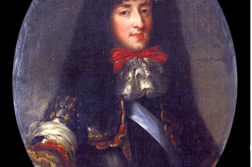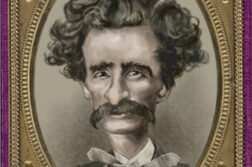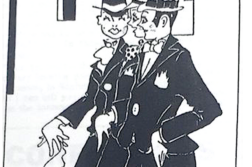Gay scholar and poet David Bergman called him the gayest poet of World War II, and National Endowment for the Arts chief Dana Gioia called him the best Catholic poet of the latter half of the 20th Century. This is Dunstan Thompson, who has always been one of my favorite poets. But, today, who has ever heard of him?
When I discovered Dunstan Thompson’s poetry, it was actually not very long after I had discovered poetry when I was a young soldier. And I met him only once, unforgettably, shortly after my discharge from the military at the end of World War II. It was a mystery when, after his youthful success with two books of poems published in the U.S. and one in England to extraordinary acclaim, Dunstan Thompson disappeared from the literary world, as dramatically as if a kingfisher flashed electric blue in the sunlight before diving into a pool, never to reappear. I would not learn the story of the rest of his life until many years later.
IN 1943, after Basic Training in Miami Beach, I was in a line of soldiers boarding a troop train for a slow journey of several days across the country to an unknown destination, when a Red Cross lady handed each of us a bag of necessities for the trip, containing toothbrush, comb, candy bar—and a paperback book. The book in my bag was, fatefully, a Louis Untermeyer anthology of great poems of the English language, which I devoured during the long hours of being shunted onto sidings. Three days later, when I got off that train, I knew what I wanted to be: a poet—despite the fact that at age eighteen I had never written a line, and had never known anyone who could conceivably have been called a poet. Of course, in my town writing poetry would have labeled you a sissy. But the army had liberated me from all that.






